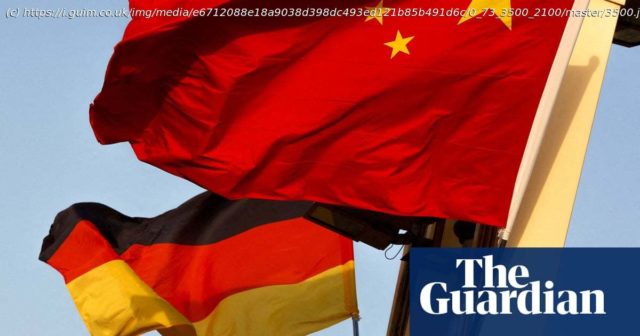Array
Russia’s war in Ukraine has woken Germany up to the risk of having an economy that is too reliant on raw materials provided by an autocratic strongman. But as the Germany chancellor, Olaf Scholz, heads to Beijing at the end of this week, there are questions as to whether he would rather leave lessons from the recent past at home in Berlin.
Scholz is the first representative of a liberal democracy to be granted a state visit to China since the outbreak of the coronavirus pandemic in Wuhan in 2019, and will be the first major political leader to meet Xi Jinping since the Chinese president consolidated his power with a shake-up at the top of the Communist party.
He will make a one-day visit to Beijing on Friday as a representative of a government that has vowed to turn a page from the Angela Merkel era, when Germany pushed for closer economic cooperation in the wake of the 2008 financial crisis and cemented its relationship over 12 state visits to China in Merkel’s 16-year tenure.
The current German three-party coalition government, by contrast, has announced its intention to reduce its economic dependence and strengthen relations with democratic states in Asia. In the coalition deal signed at the end of last year, it labelled its relationship with China as a “systemic rivalry” and emphasised the need to address “geopolitical and security policy questions together with the United States and critical Indo-Pacific partners such as Japan, Australia and India”.
Such China-sceptic noises are echoed by Germany’s intelligence community, with the head of the domestic spy agency warning at a recent parliamentary hearing that China represented a greater threat than Russia. “If Russia is a storm, China is climate change,” said Thomas Haldenwang.
Unlike his predecessors Merkel and Gerhard Schröder, Scholz in April made Tokyo, not Beijing, the destination of his first official trip to Asia. Allies claimed at the time that it was symbolic of a reassessment of Germany’s geopolitical priorities.
In an op-ed published in Frankfurter Allgemeine Zeitung on Wednesday, Scholz said China was becoming more preoccupied with questions relating to national autonomy and security. “If China changes, our dealings with China have to change too,” he wrote.
But until now, the chancellor has given few clues as to what this reassessment will mean in practice. Worse still, there are fears that the reassessment has been reassessed once more. Last week, Scholz’s chancellory pushed through a deal that allows the Chinese state-owned shipping company Cosco to buy a 24.






